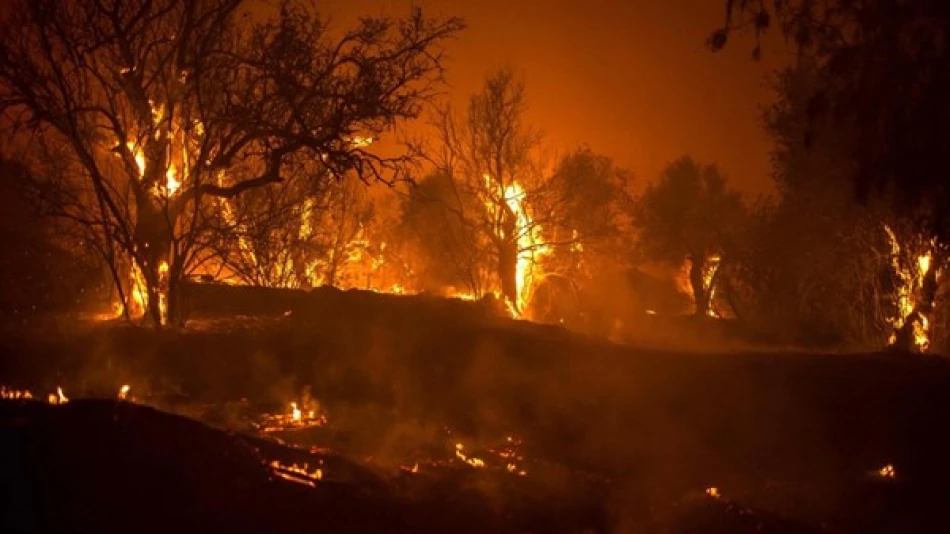
Devastating Wildfire Ravages Cyprus Forests, Causing Massive Damage
Cyprus Battles Deadly Wildfire as Climate Crisis Intensifies Mediterranean Fire Season
A devastating wildfire in southern Cyprus has claimed two lives and forced hundreds to evacuate, highlighting the growing vulnerability of Mediterranean nations to extreme weather events. The blaze, fueled by record-breaking temperatures reaching 44°C and strong winds, has destroyed homes and threatens populated areas near the island's largest water reservoir during an ongoing drought crisis.
Extreme Heat Fuels Unprecedented Fire Conditions
The wildfire erupted in mountainous terrain north of Limassol, Cyprus's second-largest city, amid what meteorologists are calling the hottest day of the year so far. With temperatures soaring to 43°C on Wednesday and expected to reach 44°C on Thursday, the island is experiencing conditions that create perfect storm scenarios for wildfire spread.
President Nicos Christodoulides, speaking from the scene, described the situation as "extremely difficult" with a "massive fire area," confirming that all available forces had been deployed. The discovery of two fatalities overnight underscores the deadly potential of such extreme weather events, which are becoming increasingly common across the Mediterranean basin.
Strategic Location Raises Water Security Concerns
The fire's proximity to the Kouris reservoir—Cyprus's largest water storage facility—adds another layer of urgency to containment efforts. The island has been grappling with prolonged drought conditions that have severely depleted already scarce water resources, making the protection of critical infrastructure paramount.
International Response Reflects Regional Fire-Fighting Cooperation
Cyprus has activated the European Union's Civil Protection Mechanism, with Spain expected to deploy two aircraft on Thursday. Jordan has also pledged assistance, demonstrating the growing recognition that wildfire response requires international coordination.
This mirrors similar cooperative efforts seen during recent fire seasons across southern Europe, where countries like Greece, Turkey, and Italy have increasingly relied on shared resources to combat blazes that routinely overwhelm national capabilities.
Mediterranean Climate Crisis Accelerates
The Cyprus wildfire represents more than an isolated emergency—it signals the intensification of climate-driven disasters across the Mediterranean region. Scientists have consistently warned that rising global temperatures would make such extreme events more frequent and severe, particularly in already arid regions.
The combination of prolonged drought, record temperatures, and strong winds creates conditions that can turn minor ignitions into major disasters within hours. This pattern has become increasingly familiar across southern Europe, from Portugal's deadly 2017 fires to Greece's devastating 2021 season that prompted mass evacuations.
Economic and Environmental Implications
Beyond immediate human costs, such fires carry significant economic implications for small island economies like Cyprus, which depend heavily on tourism and agriculture. The destruction of homes and potential damage to tourist areas during peak season could have lasting financial impacts.
The environmental consequences extend beyond immediate fire damage, as repeated extreme weather events can fundamentally alter local ecosystems and water cycles, potentially making future droughts and fires even more severe.
As Mediterranean nations face an increasingly volatile climate future, the Cyprus wildfire serves as a stark reminder that current emergency response systems may need substantial upgrades to handle what scientists predict will become the new normal for summer weather patterns in the region.
Most Viewed News

 Layla Al Mansoori
Layla Al Mansoori






